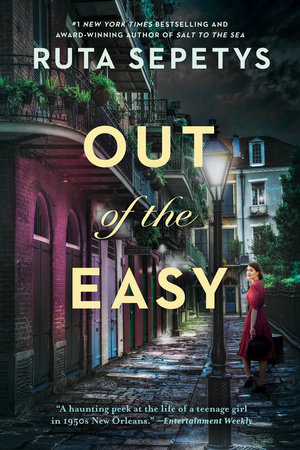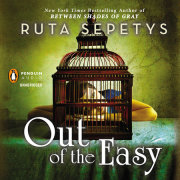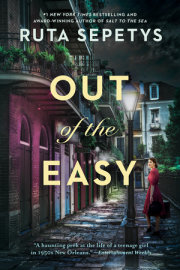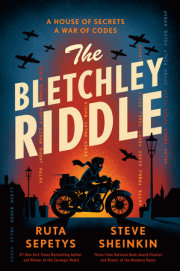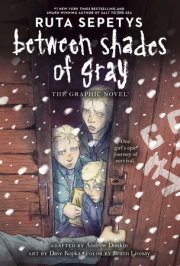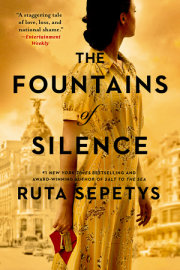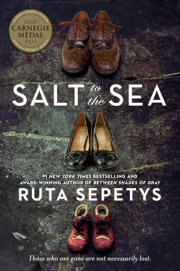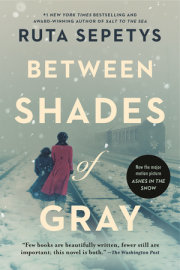CHAPTER ONE:
My mother’s a prostitute. Not the filthy, streetwalking kind. She’s actually quite pretty, fairly well spoken, and has lovely clothes. But she sleeps with men for money or gifts, and according to the dictionary, that makes her a prostitute.
She started working in 1940 when I was seven, the year we moved from Detroit to New Orleans. We took a cab from the train station straight to a fancy hotel on St. Charles Avenue. Mother met a man from Tuscaloosa in the lobby while having a drink. She introduced me as her niece and told the man she was delivering me to her sister. She winked at me constantly and whispered that she’d buy me a doll if I just played along and waited for her. I slept alone in the lobby that night, dreaming of my new doll. The next morning, Mother checked us in to our own big room with tall windows and small round soaps that smelled like lemon. She received a green velvet box with a strand of pearls from the man from Tuscaloosa.
“Josie, this town is going to treat us just fine,” said Mother, standing topless in front of the mirror, admiring her new pearls.
The next day, a dark-skinned driver named Cokie arrived at the hotel. Mother had received an invitation to visit someone important in the Quarter. She made me take a bath and insisted I put on a nice dress. She even put a ribbon in my hair. I looked silly, but I didn’t say anything to Mother. I just smiled and nodded.
“Now, Josie, you aren’t to say a thing. I’ve been hoping Willie would call for me, and I don’t need you messing things up with your stubbornness. Don’t speak unless you’re spoken to. And for gosh sakes, don’t start that humming. It’s spooky when you do that. If you’re good, I’ll buy you something real special.”
“Like a doll?” I said, hoping to jog her memory.
“Sure, hon, would you like a doll?” she said, finishing her sweep of lipstick and kissing the air in front of the mirror.
Cokie and I hit it off right away. He drove an old taxicab painted a foggy gray. If you looked close, you could see the ghost of taxi lettering on the door. He gave me a couple Mary Jane candies and a wink that said, “Hang in there, kiddo.” Cokie whistled through the gaps in his teeth as he drove us to Willie’s in his taxicab. I hummed along, hoping the molasses from the Mary Jane might yank out a tooth. That was the second night we were in New Orleans.
We pulled to a stop on Conti Street. “What is this place?” I asked, craning my neck to look at the pale yellow building with black lattice balconies.
“It’s her house,” said Cokie. “Willie Woodley’s.”
“Her house? But Willie’s a man’s name,” I said.
“Stop it, Josie. Willie is a woman’s name. Now, keep quiet!” said Mother, smacking my thigh. She smoothed her dress and fidgeted with her hair. “I didn’t think I’d be so nervous,” she muttered.
“Why are you nervous?” I asked.
She grabbed me by the hand and yanked me up the walk. Cokie tipped his hat to me. I smiled and waved back. The sheers in the front window shifted, covering a shadowy figure lit by an amber glow behind the glass. The door opened before we reached it.
“And you must be Louise,” a woman said to Mother.
A brunette in a velvet evening dress hung against the door. She had pretty hair, but her fingernails were chewed and frayed. Cheap women had split nails. I’d learned that in Detroit.
“She’s waitin’ for you in the parlor, Louise,” said the brunette.
A long red carpet ran from the front door to a tall staircase, crawling up and over each step. The house was opulent, gaudy, with deep green brocades and lamps with black crystals dangling from dimly lit shades. Paintings of nude women with pink nipples hung from the foyer walls. Cigarette smoke mingled with stale Eau de Rose. We walked through a group of girls who patted my head and called me sugar and doll. I remember thinking their lips looked like someone had smeared blood all over them. We walked into the front parlor.
I saw her hand first, veiny and pale, draped over the arm of an upholstered wingback. Her nails, glossy red like pomegranate seeds, could pop a balloon with a quick flick. Clusters of gold and diamonds adorned nearly every finger. Mother’s breathing fluttered.
I approached the hand, staring at it, making my way around the back of the chair toward the window. Black heels poked out from beneath a stiff tailored skirt. I felt the bow in my hair slide down the side of my head.
“Hello, Louise.”
The voice was thick and had mileage on it. Her platinum-blond hair was pulled tight in a clasp engraved with the initials W.W. The woman’s eyes, lined in charcoal, had wrinkles fringing out from the corners. Her lips were scarlet, but not bloody. She was pretty once.
The woman stared at me, then finally spoke. “I said, ‘Hello, Louise.’”
“Hello, Willie,” said Mother. She dragged me in front of the chair. “Willie, this is Josie.”
I smiled and bent my scabby legs into my best curtsy. The arm with the red nails quickly waved me away to the settee across from her. Her bracelet jangled a discordant tune.
“So . . . you’ve returned.” Willie lifted a cigarette from a mother-of-pearl case and tapped it softly against the lid.
“Well, it’s been a long time, Willie. I’m sure you can understand.”
Willie said nothing. A clock on the wall swung a ticktock rhythm. “You look good,” Willie finally said, still tapping the cigarette against its case.
“I’m keeping myself,” said Mother, leaning back against the settee.
“Keeping yourself . . . yes. I heard you had a greenhorn from Tuscaloosa last night.”
Mother’s back stiffened. “You heard about Tuscaloosa?”
Willie stared, silent.
“Oh, he wasn’t a trick, Willie,” said Mother, looking into her lap. “He was just a nice fella.”
“A nice fella who bought you those pearls, I guess,” said Willie, tapping her cigarette harder and harder against the case.
Mother’s hand reached up to her neck, fingering the pearls.
“I’ve got good business,” said Willie. “Men think we’re headed to war. If that’s true, everyone will want their last jollies. We’d work well together, Louise, but . . .” She nodded in my direction.
“Oh, she’s a good girl, Willie, and she’s crazy smart. Even taught herself to read.”
“I don’t like kids,” she spat, her eyes boring a hole through me.
I shrugged. “I don’t like ’em much either.”
Mother pinched my arm, hard. I felt the skin snap. I bit my lip and tried not to wince. Mother became angry when I complained.
“Really?” Willie continued to stare. “So what do you do . . . if you don’t like kids?”
“Well, I go to school. I read. I cook, clean, and I make martinis for Mother.” I smiled at Mother and rubbed my arm.
“You clean and make martinis?” Willie raised a pointy eyebrow. Her sneer suddenly faded. “Your bow is crooked, girl. Have you always been that skinny?”
“I wasn’t feeling well for a few years,” said Mother quickly. “Josie is very resourceful, and—”
“I see that,” said Willie flatly, still tapping her cigarette.
I moved closer to Mother. “I skipped first grade altogether and started in the second grade. Mother lost track I was supposed to be in school—” Mother’s toe dug into my ankle. “But it didn’t matter much. She told the school we had transferred from another town, and I just started right in second grade.”
“You skipped the first grade?” said Willie.
“Yes, ma’am, and I don’t figure I missed anything at all.”
“Don’t ma’am me, girl. You’ll call me Willie. Do you understand?” She shifted in her chair. I spied what looked like the butt of a gun stuffed down the side of the seat cushion.
“Yes, Mrs. Willie,” I replied.
“Not Mrs. Willie. Just Willie.”
I stared at her. “Actually, Willie, I prefer Jo, and honestly, I don’t much care for bows.” I pulled the ribbon from my thick brown bob and reached for the lighter on the table.
“I didn’t ask for a light,” said Willie.
“No, but you’ve tapped your cigarette fifty-three times . . . now fifty-four, so I thought you might like to smoke it.”
Willie sighed. “Fine, Jo, light my cigarette and pour me a Scotch.”
“Neat or on the rocks?” I asked.
Her mouth opened in surprise, then snapped shut. “Neat.” She eyed me as I lit her cigarette.
“Well, Louise,” said Willie, a long exhale of smoke curling above her head, “you’ve managed to mess things up royal, now, haven’t you?”
Mother sighed.
“You can’t stay here, not with a child. You’ll have to get a place,” said Willie.
“I don’t have any money,” said Mother.
“Sell those pearls to my pawn in the morning and you’ll have some spending money. There’s a small apartment on Dauphine that one of my bookies was renting. The idiot went and got himself shot last week. He’s taking a dirt nap and won’t need the place. The rent is paid until the thirtieth. I’ll make some arrangements, and we’ll see where you are at the end of the month.”
“All right, Willie,” said Mother.
I handed Willie the drink and sat back down, nudging the bow under the settee with my foot.
She took a sip and nodded. “Honestly, Louise, a seven-year-old bartender?”
Mother shrugged.
That was ten years ago. She never did buy me the doll.
Copyright © 2013 by Ruta Sepetys. All rights reserved. No part of this excerpt may be reproduced or reprinted without permission in writing from the publisher.

